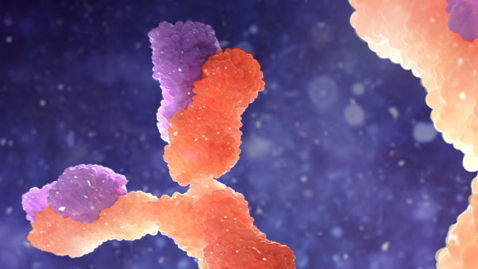High-prevalence antigens occur in greater than 99% of the population. Antibodies to high-prevalence antigens are rare and may be difficult to identify due to the lack of antigen-negative panel cells for these antigens. Examples of antibodies to high-prevalence antigens are: anti-k, anti-Kpb, anti-Jsb, and anti-Lub among many others.
There is a need to proper identify these antibodies before transfusion to differentiate clinically significant antibodies, that could cause hemolytic transfusion reactions or hemolytic disease of the fetus and newborn from those with little or no clinical relevance. Their specific identification is often difficult, labor-intensive, and time-consuming and it may be difficult to find antigen-negative compatible blood for the patient in need of a transfusion.
Learn in this episode clues to recognize if an antibody to a high-prevalence antigen is present and how to apply practices for their identification in the lab and additional recommendations for patient management.
This educational podcast activity is brought to you by Ortho Clinical Diagnostics, Inc., and is not certified for continuing medical education. Ortho Clinical Diagnostics, Inc. sponsors the program, and the speaker must present information following applicable FDA requirements.
About our Speaker:

About our Speaker:
Shane Grimsley, DipRCPath
Shane Grimsley, DipRCPath; holds a diplomate in Pathology from the Royal College of Pathologists, UK and has been working at the International Blood Group Reference Laboratory, NHSBT in the UK since 2009, as laboratory manager from 2015 and Senior Clinical Scientist since 2020. Since 2017, Shane has been the lead scientific advisor to the UK NEQAS Red Cell Genotyping scientific advisory group, compiling complex reports to help educate the users. He has been an active member of the editorial board for Immunohematology as well as a reviewer for Vox Sanguinis and Transfusion Medicine since 2019. Shane is the winner of the 2020 Race and Sanger award from British Blood Transfusion Society for outstanding contribution to the field of Transfusion, primarily for his work developing a genotyping platform for accurate prediction of variant phenotypes in patients with Sickle Cell Disorder. He also is a winner of the 2010 Margaret Kenwright Young Scientist of the year from the British Blood Transfusion Society, for his work resolving complex compound heterozygous allele combinations and the identifying the associated antibody specificities. Shane is an international scientific speaker and a workshop instructor for immunohematology topics in conference programs, such as ISBT. He also has been involved in the identification of new blood group systems, new antigens and novel alleles. Shane is helping lead a team of skilled and passionate scientists to resolve the world’s most complex immunohematology cases, contributing to ground-breaking projects that have improved the standards of care for patients. .
Shane Grimsley, DipRCPath; holds a diplomate in Pathology from the Royal College of Pathologists, UK and has been working at the International Blood Group Reference Laboratory, NHSBT in the UK since 2009, as laboratory manager from 2015 and Senior Clinical Scientist since 2020. Since 2017, Shane has been the lead scientific advisor to the UK NEQAS Red Cell Genotyping scientific advisory group, compiling complex reports to help educate the users. He has been an active member of the editorial board for Immunohematology as well as a reviewer for Vox Sanguinis and Transfusion Medicine since 2019. Shane is the winner of the 2020 Race and Sanger award from British Blood Transfusion Society for outstanding contribution to the field of Transfusion, primarily for his work developing a genotyping platform for accurate prediction of variant phenotypes in patients with Sickle Cell Disorder. He also is a winner of the 2010 Margaret Kenwright Young Scientist of the year from the British Blood Transfusion Society, for his work resolving complex compound heterozygous allele combinations and the identifying the associated antibody specificities. Shane is an international scientific speaker and a workshop instructor for immunohematology topics in conference programs, such as ISBT. He also has been involved in the identification of new blood group systems, new antigens and novel alleles. Shane is helping lead a team of skilled and passionate scientists to resolve the world’s most complex immunohematology cases, contributing to ground-breaking projects that have improved the standards of care for patients. .









